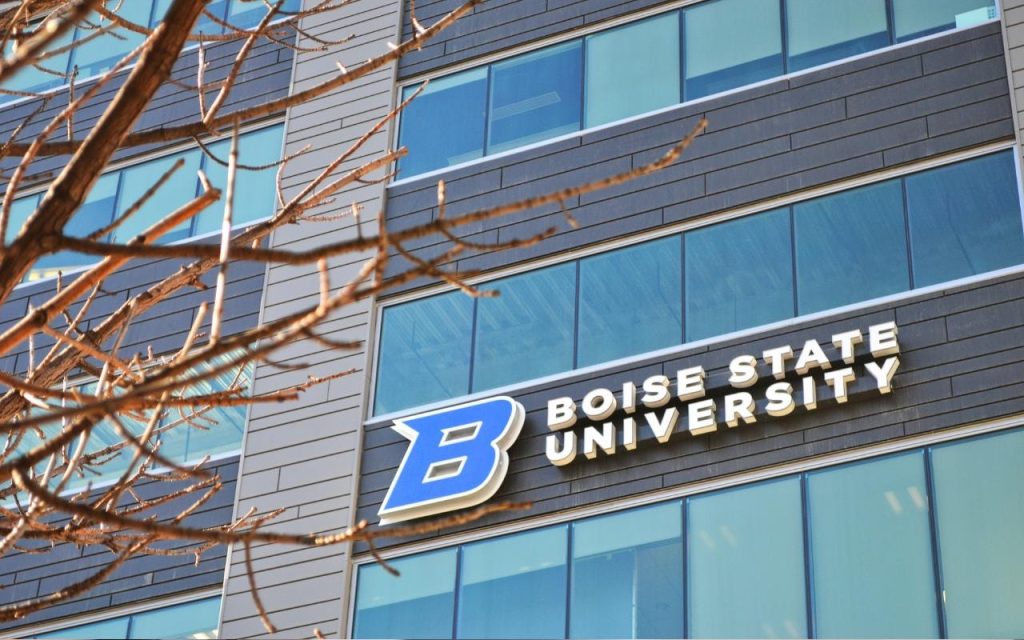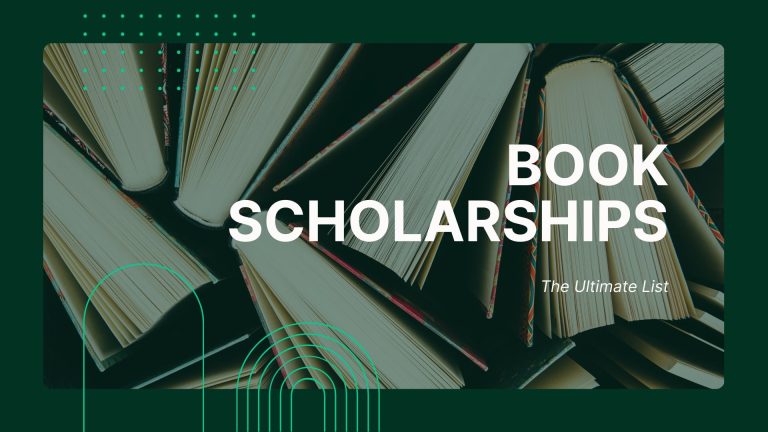If you’re a student in Idaho and feel overwhelmed by the rising education costs or simply want to find additional financial resources to pay for school without a mountain of debt, you are not alone. So, why is debt so normalized in young people? The total debt of Idaho’s state debt is 12.6 billion, with an average of $33,119 of average borrower debt, and 47.6% of them are under age 35.
The cost of college is high, but not having a college degree isn’t much easier. So, let’s explore the world of Idaho scholarships, including state-funded, private programs and resources to help you secure financial aid and graduate without mountains of student debt.
At Scholarship Institute, we have gathered some of the best no-essay scholarship awards for students looking for additional financial assistance to pay for their education.

Scholarship awards for Idaho residents offer multiple opportunities to reduce financial stress so students can focus on their academic goals. Whether you’re a high school student preparing for college or already enrolled in your university, Idaho offers a wide range of scholarships designed to make education more accessible and affordable.
The Importance of Financial Aid
The Free Application for Federal Student Aid (FAFSA) is the first step students should take if pursuing higher education. By filling out this form, the federal government helps students access essential financial resources that can make college more affordable.
Completing the FAFSA form ensures students have access to federal, state, and institutional financial aid opportunities that:
- Open the door to financial aid: FAFSA is key if you want to access federal financial aid programs such as grants, work-study, and loans. Grants do not need to be repaid compared to loans that need to be repaid. The good thing about student federal loans is they have low interest rates and flexible repayment terms. Many state governments and colleges require FAFSA to determine eligibility for their financial aid programs, including grants, scholarships, and tuition waivers. For example, Idaho’s Opportunity Scholarship and Florida’s Bright Futures Scholarship rely on FAFSA data.
- Helps reduce student loans: FAFSA reduces the need for students to rely heavily on loans. Since work-study and grants don’t need to be repaid, students can minimize the amount of federal student loans they get.
- Supports all kinds of students: FAFSA is not just for traditional college students. It is also open to benefit undergraduate students, graduate students enrolled, non-traditional students (returning to school after a gap), and first-generation college students.

Idaho Colleges and Universities
Idaho has 12 colleges and universities offering degree programs, but other smaller, non-degree-granting institutions, trade schools, or satellite campuses exist. For example, technical programs like the Idaho College of Osteopathic Medicine or online programs offered by Western Governors University.
These institutions range from large research universities to smaller liberal arts colleges, offering a variety of fields, including business, engineering, healthcare, education, and the humanities.
Many of these schools are known for their strong academic programs, community involvement, and student success. For example, Boise State University, located in the state’s capital, is famous for its innovation in research and campus life.
Public Colleges and Universities:
- Boise State University
- Idaho State University
- University of Idaho
- Lewis-Clark State College
Community Colleges:
- College of Western Idaho
- North Idaho College
- College of Southern Idaho
- College of Eastern Idaho
Private Colleges and Universities:
- Northwest Nazarene University
- Brigham Young University-Idaho
- The College of Idaho
- New Saint Andrews College

Idaho High School Students
High school students in Idaho have access to many scholarships to help make their college goals a reality. Programs like the Idaho Opportunity Scholarship and Idaho Advanced Opportunities Funding are specifically designed to support students as they transition from high school to higher education.
For example, opportunities like the Idaho Opportunity Scholarship give financial aid to students with a minimum 2.7 GPA who intend to attend an in-state college or university.
Other opportunities for high-achieving students include scholarships like The Bright Future in Energy Scholarship Competition, which rewards academic excellence and encourages local talent to stay within the state.

North Idaho College
The North Idaho College Foundation had over $1 million in scholarship funding available for NIC students. In order to apply, students need to register and log in to their “MyNIC” account and on the “NIC Foundation Scholarship Application.”
Fill out your info and complete the essay section. Once you submit the application, the system will match each student with the scholarships for which they are eligible. Some may require more materials, so apply early to avoid missing documents or having important deadlines.

Boise State University
In some cases, applying for scholarships can be done without additional steps. When you apply to Boise State, you’re automatically considered for scholarships—no separate application is required. A complete application includes your admissions form and transcript(s). Make sure to submit all required materials by the deadline on the scholarship dates and deadlines page.
If you’re from an unaccredited high school or are a home-schooled student, click here to learn what qualifies as a complete application.

Understanding Idaho Opportunity Scholarship
Scholarships are one of the best ways to reduce the cost of college without student loans. Idaho students can benefit from options available at the local, state, and national levels, with these higher education can be more attainable for everyone.
Applying for Idaho Scholarships
Applying for Idaho scholarships is straightforward, but it requires attention to detail and patience. Students can start by filling out the FAFSA form to open a wide range of federal and state opportunities. In addition, students can search for smaller scholarships from state or even local organizations.
By applying to smaller scholarship awards, the opportunity of winning one of them increases. Since the competition of many of these local scholarships is lower, students can win smaller amounts of aid while gaining experience in the application process. In some cases, essays are an essential part of earning this opportunity, so practicing at a smaller level can provide useful information on what works from your story and how to tweak your personal or scholarship essay.
In the case of Idaho, many state scholarships are managed through the Scholarship Idaho platform, which simplifies the application process.
Steps to Apply:
- Create a Profile on Scholarship Idaho.
- Check Eligibility Criteria: Each scholarship has specific requirements, including GPA, residency, and enrollment status.
- Submit the FAFSA: This is crucial for determining eligibility for federal aid and some state-based scholarships.
Remember to pay attention to the scholarship deadlines since they vary, so stay organized and check all the scholarship opportunities early!

Frequently Asked Questions About Idaho Scholarships
1. What scholarships are available for students attending Eastern Idaho Technical College?
Students attending Eastern Idaho Technical College (now part of the College of Eastern Idaho) can access scholarships through the Idaho Opportunity Scholarship and the Idaho Community Foundation. Additionally, students should explore local, state, and national scholarships in digital platforms and inquire with the college’s financial aid office for institution-specific opportunities.
2. How can high school students in Idaho start preparing for scholarships and postsecondary education?
High school students can begin by completing the FAFSA since many scholarships require students to fill it out for eligibility. They should also maintain a strong GPA, and we recommend participating in extracurricular activities, as many scholarships reward academic and leadership excellence. Exploring resources like the Idaho State Board of Education and platforms such as Bold.org can help students find opportunities tailored to their goals.
3. What role does the Idaho Community Foundation play in providing scholarships?
The Idaho Community Foundation offers scholarship programs funded by donors across the state of Idaho. These scholarships support students pursuing postsecondary education at both public and private institutions. They are created for high school seniors, college students, and non-traditional learners. Students can visit their website to check available scholarships and application requirements.
4. Are there scholarships specifically for first-generation students attending college in Idaho?
Yes, first-generation students in Idaho can benefit from programs like the First Generation Matching Grant Program, which provides financial aid to students who are the first in their families to pursue postsecondary education. Additionally, the Idaho Community Foundation and State Board of Education offer scholarships prioritizing first-generation students and those with financial need.
5. What resources does the State Board of Education provide for students looking for financial aid in Idaho?
A platform through Scholarship Idaho, where students can find state-managed scholarships like the Idaho Opportunity Scholarship and Idaho LAUNCH grants. The board also provides guidance on navigating financial aid, including FAFSA support and information on tuition waivers for in-state students.
6. Can students in Idaho combine multiple scholarships to cover the full cost of attending college?
Yes, students in Idaho can combine scholarships, such as awards from the Idaho Community Foundation, State of Idaho programs, and institutional scholarships. However, the total amount of financial aid cannot exceed the cost of attendance set by the school.
Looking for more scholarship opportunities? At Scholarship Institute, we are proud to gather scholarship award information for all students, no matter their background, achievements, or education.







